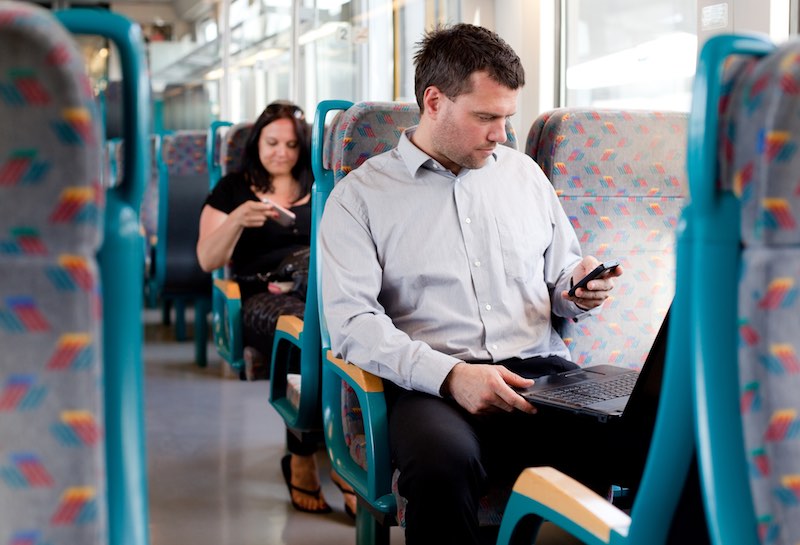Mobile Coverage on Railways Remains Poor Despite Government Pledge

The National Infrastructure Commission (NIC) has warned that mobile service remains “inadequate” on the UK’s railways, despite a government pledge to upgrade it.
In December 2017, the government committed to delivering "uninterrupted" Wi-Fi and 5G mobile signal, with speeds of up 1Gbps, to trains on all UK mainline routes by 2025.
However, the NIC’s report has cautioned that at the current rate of progress, even basic mobile services, for voice calls and 4G data, won’t be available on the UK’s rail network by that date.
The NIC’s report, "Connected Future: Getting back on track," attributes the lack of progress mainly to a deficit of leadership from government, which has advanced no overall plan for improving rail connectivity. Other obstacles include difficulties accessing National Rail land and the cost of installation.
NIC Chair Sir John Armitt said: “We’re all used to having mobile access on the move but for many passengers, loss of coverage while on the train occurs with frustrating regularity. In too many areas our rail infrastructure seems stuck in the digital dark ages.
“As coverage improves elsewhere, people will find it increasingly frustrating that it doesn’t extend to the railway. It would be like finding that the railway only accepts cheques for payment and not debit cards or contactless.
“Government has dropped the ball on this issue and passengers will expect it to get a firm grip and find a solution. It must set out clear plans for delivering railway connectivity and giving passengers the reassurance they need.”
The NIC’s report proposes a six-pronged plan to improve mobile coverage on the UK’s rail network and roads. It calls for the appointment of a single ministerial lead within the Department for Transport for improving mobile connectivity on railways and for the Department to, by December 2020, publish a clear programme, timeframe and standards for delivering mobile connectivity on main line routes.
The Department for Transport should also instruct Network Rail to clarify arrangements for and facilitate access to land for third parties to install a trackside connectivity infrastructure. The government should run competitive processes for delivering mobile connectivity improvements on specific main line routes, launching four competitive processes by no later than June 2021.
The NIC also wants Ofcom to report on the extent and quality of mobile coverage along railways at least every two years, breaking the data down to specify the type of coverage available (for example, 5G). The regulator should also publish annual, consistent data about mobile coverage on roads and in cars, to be included in its next Connected Nations report, due in December 2020.
While plans to improve mobile connectivity across the UK's rail networks are rudderless, Transport for London is pushing ahead a scheme to deliver 4G signal to the full extent of the London Underground, including in deep tunnels, by the mid-2020s. The eastern part of the Jubilee Line, from Westminster to Canning Town, will be connected first, beginning next month.
Read on our blog

With the government poised to implement tough new measures to...

Budget broadband provider TalkTalk has been notifying customers via email...

A year-long investigation by charity Citizens Advice has revealed a...

Education Secretary Nadhim Zahawi has announced a new commitment to...
